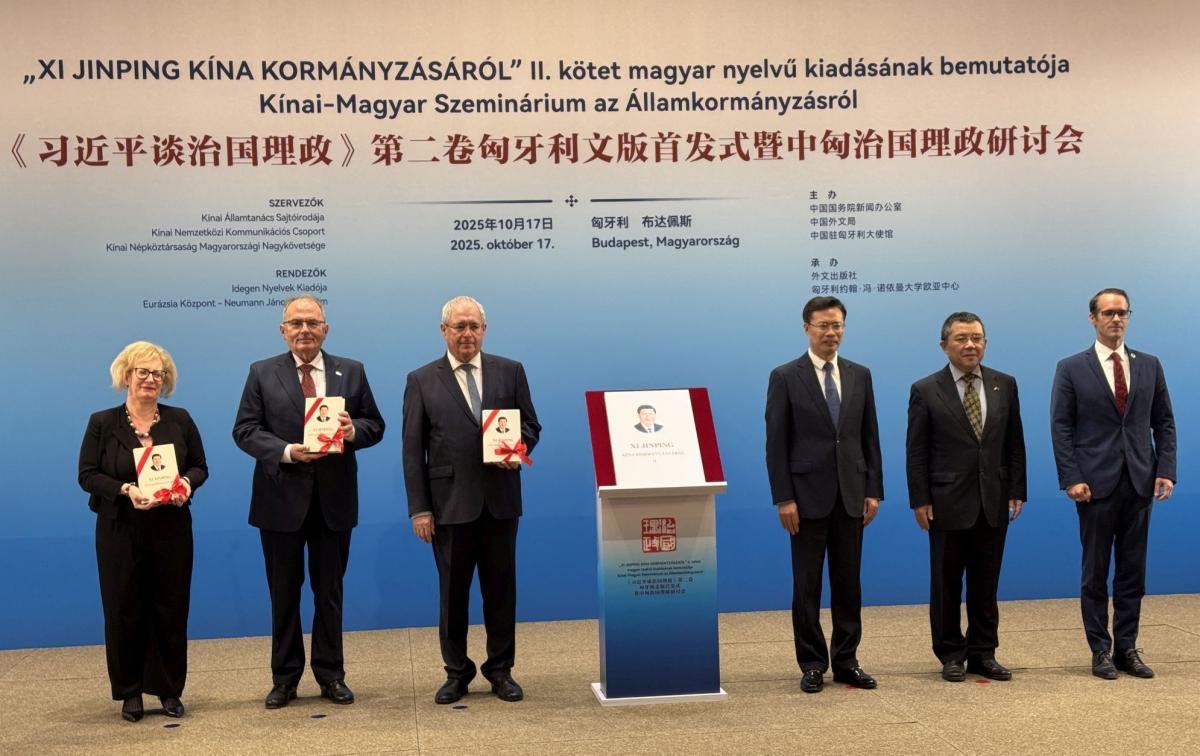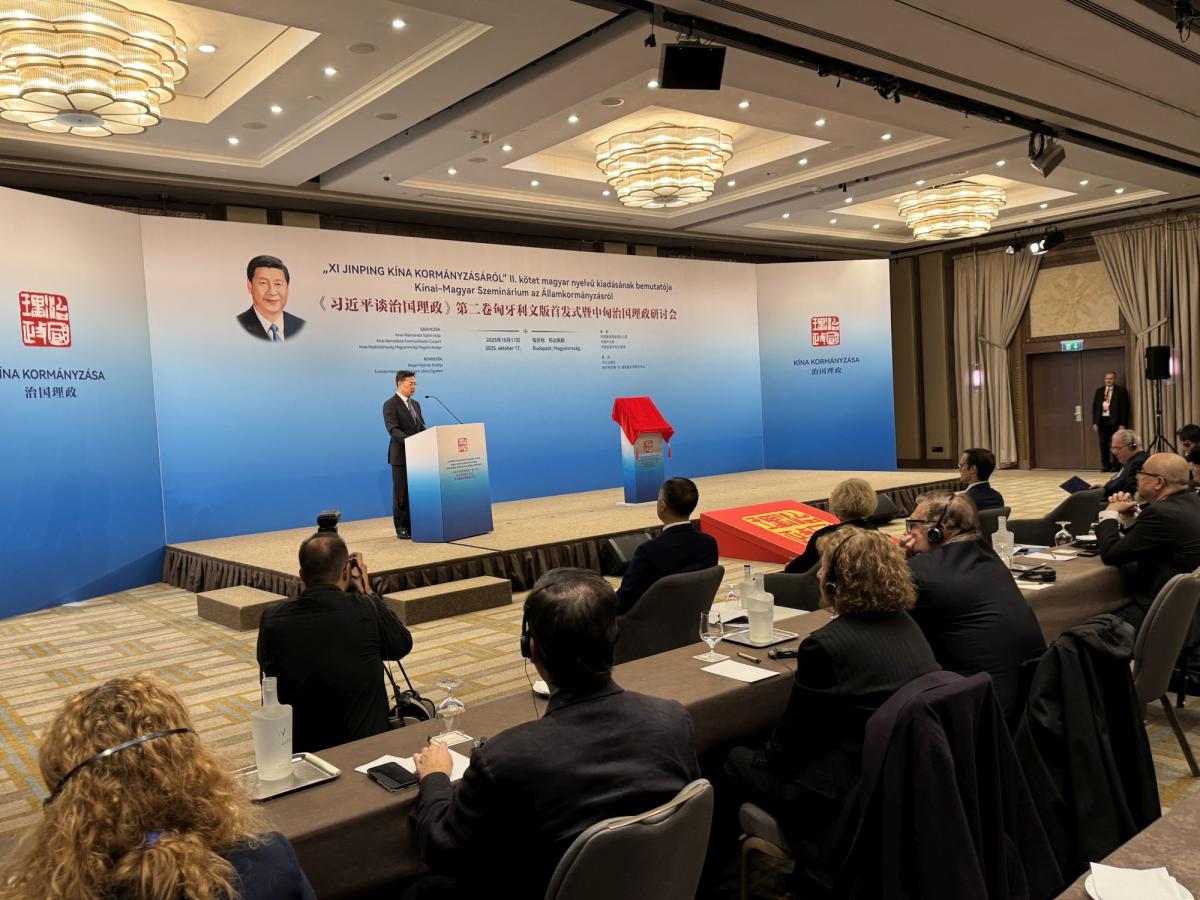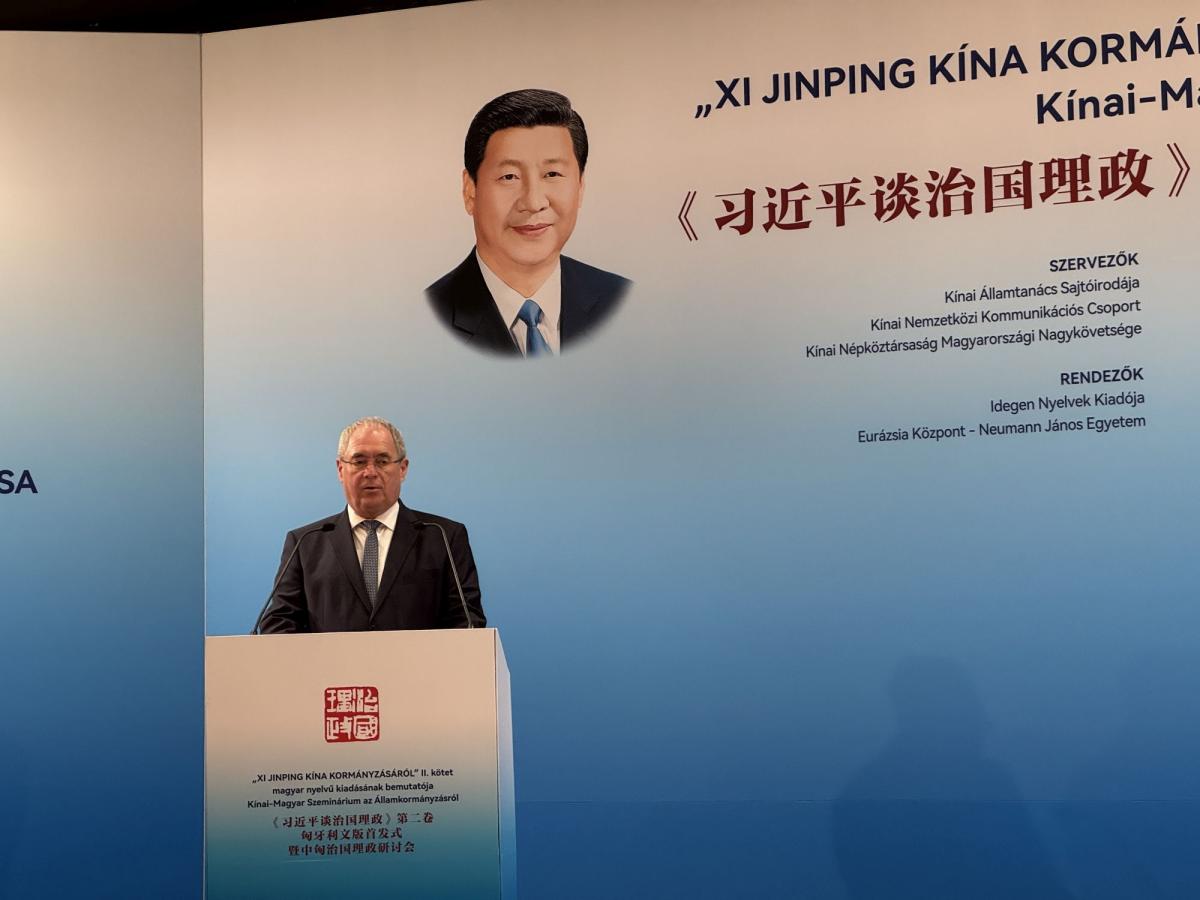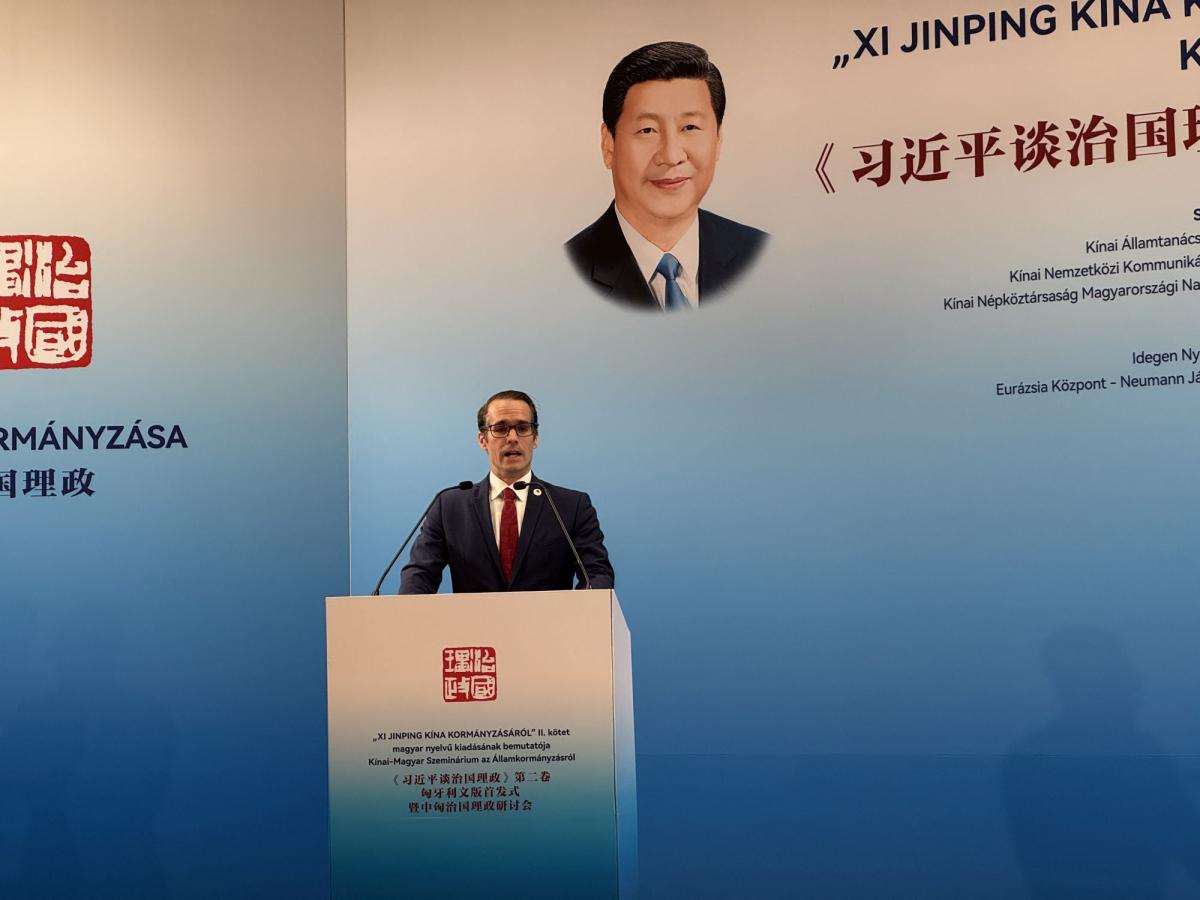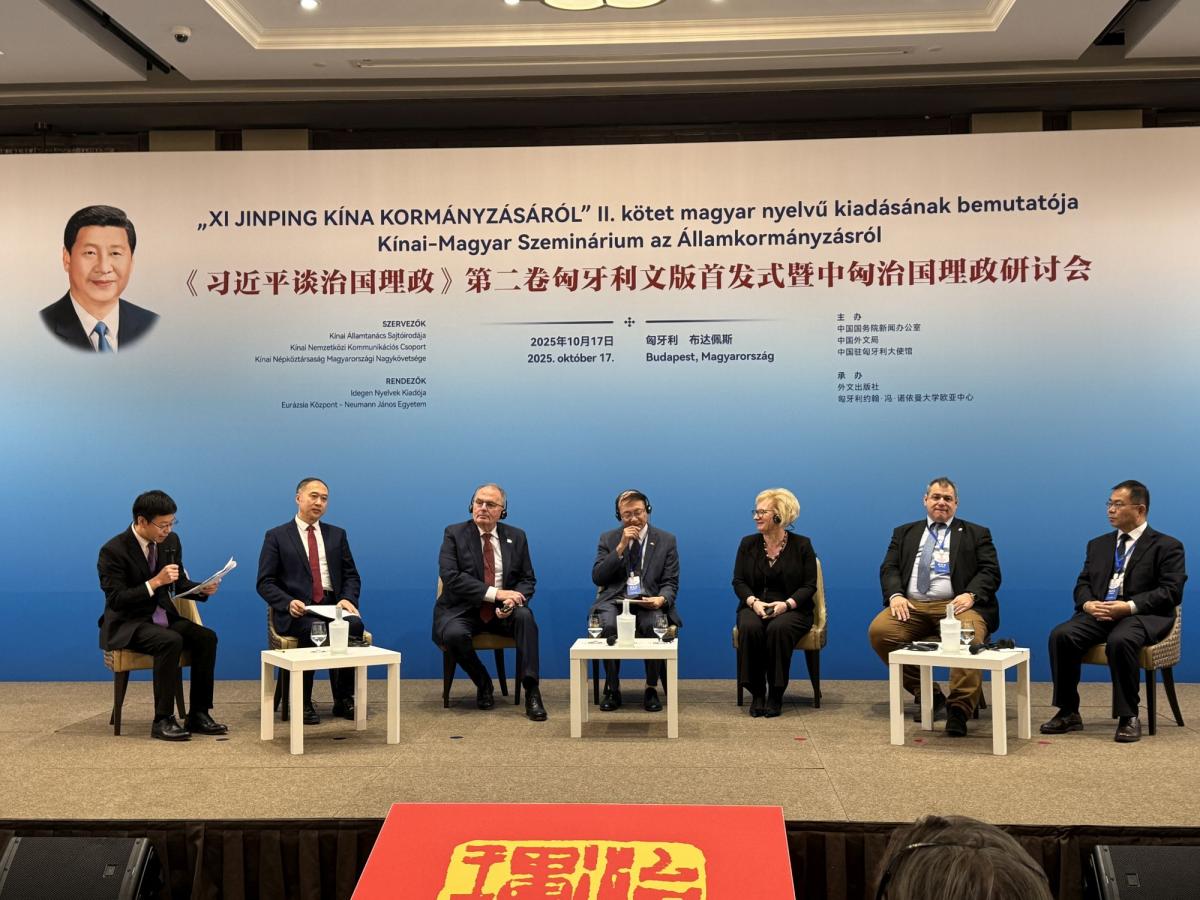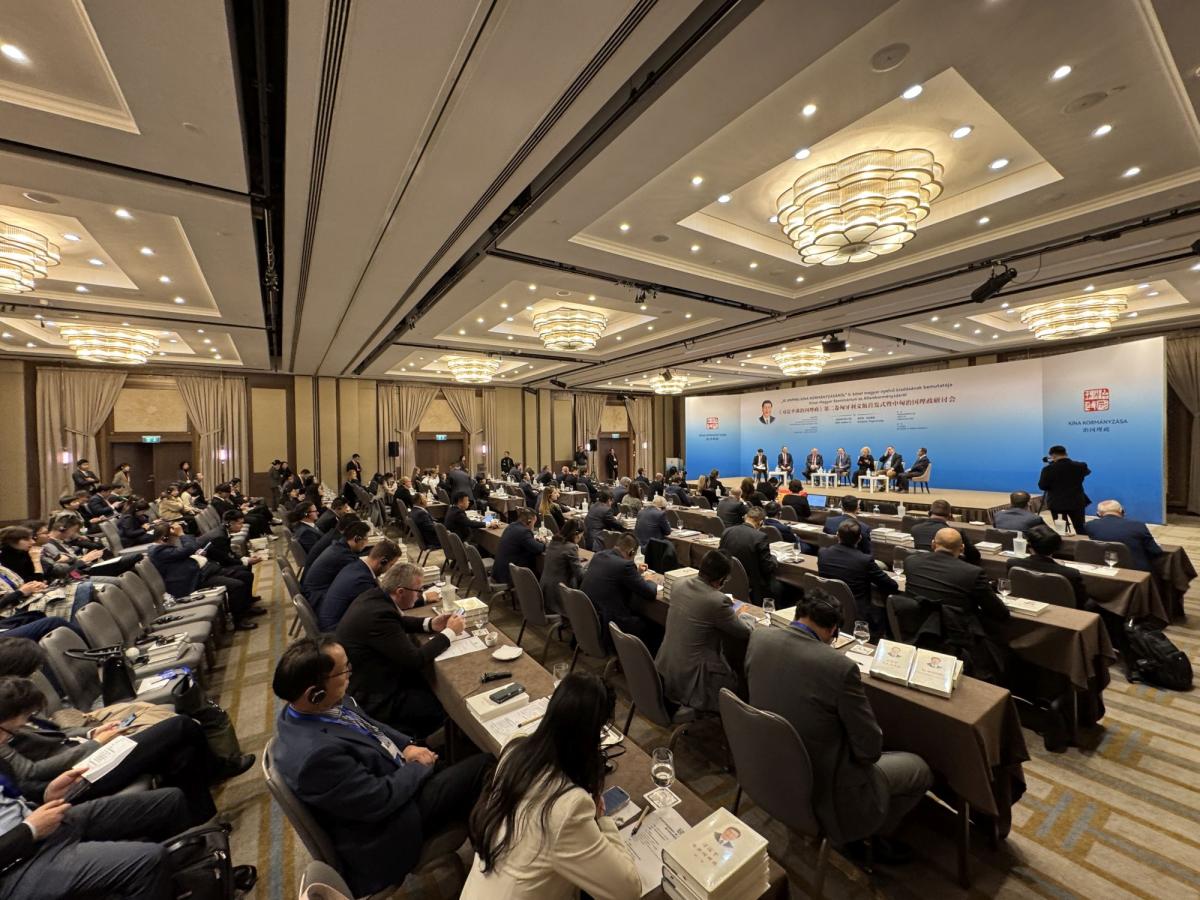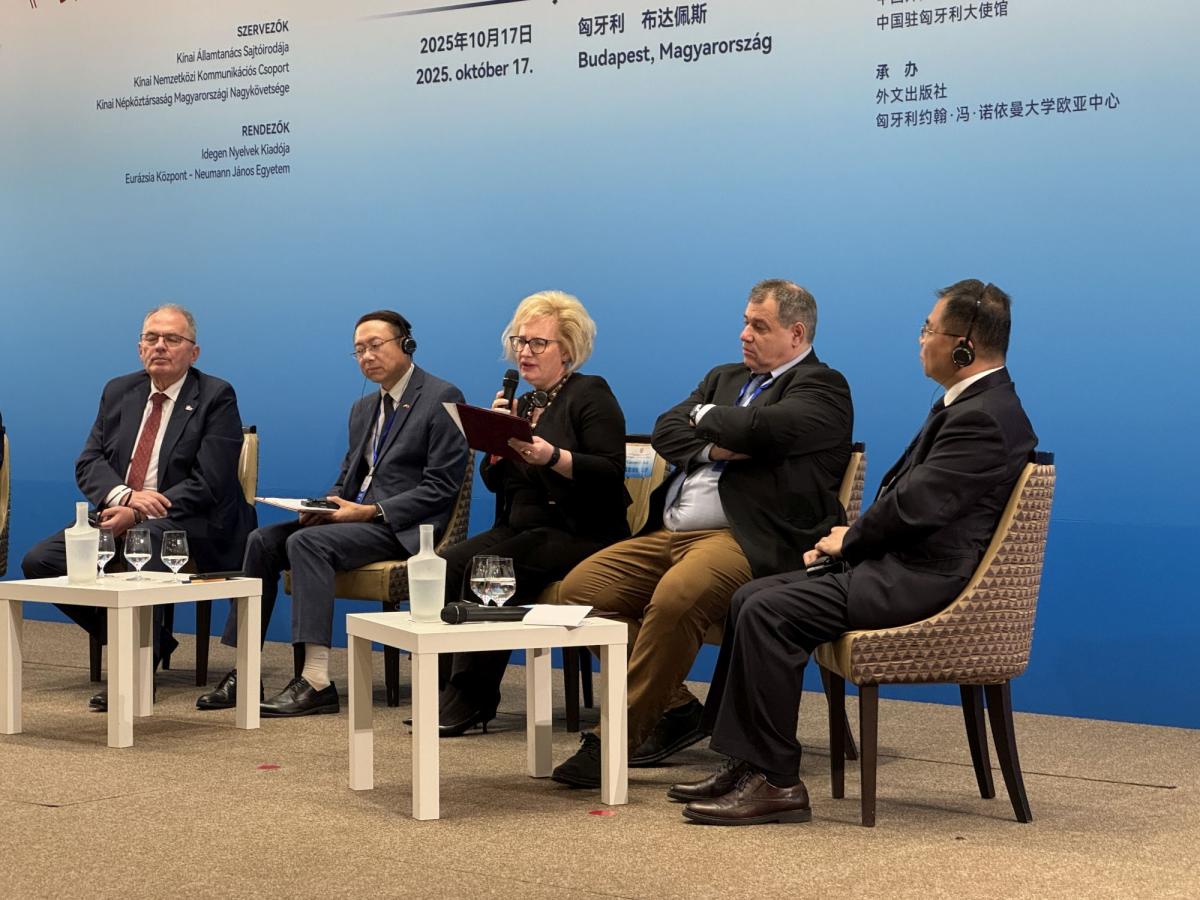
The Hungarian translation of the second volume of Chinese President Xi Jinping The Governance of China was presented in a ceremonial setting on Friday. The National Library was also taking part at the event.
The Hungarian translation of the second volume of Chinese President Xi Jinping The Governance of China was presented in a ceremonial setting on Friday. The National Library was also taking part at the event.
The Hungarian edition, published by the Eurasia Center, marks another milestone in the history of Hungarian–Chinese relations and aims to deepen cultural and scientific dialogue.
The multi-volume collection The Governance of China contains speeches, interviews, articles, and other writings by President Xi Jinping, providing a comprehensive picture of the political philosophy of the modern China, principles of governance, and directions of development. The series, now reaching its fifth volume, has been published in forty-three languages to date.
At the presentation, Yu Jingfu, Vice President of the China International Communications Group, emphasized: “Openness is one of the most important hallmarks of today’s China. Beijing strives for mutually beneficial, win-win cooperation with countries around the world. When the world develops well, China benefits; when China develops well, the world becomes a better place.” He added that relations between Hungary and China are currently at a historic high point.
In his welcoming speech, Sándor Fazekas, Deputy Speaker of the National Assembly, highlighted: “The Governance of China helps us understand the reasons behind China’s success. It presents a mindset that has shaped China’s development, social transformation, and international engagement over the past decade.” He added that the publication of the book in Hungarian “symbolizes mutual openness, understanding, and dialogue,” noting that Xi Jinping’s thoughts seek answers to how modernization can be reconciled with respect for tradition, national sovereignty, and international obligations.
Gong Tao, Ambassador of the People’s Republic of China to Hungary, stated that China aims to promote democratic popular participation in decision-making, ensuring that the benefits of development are accessible to all. He recalled that more than 800 million people have been lifted out of poverty in China through the largest poverty eradication program in history. He further emphasized that “there is no single model of governance applicable to all countries” and underlined the importance of innovation and a high level of openness.
Levente Horváth, Director of the Eurasia Center and former Consul General of Hungary in Shanghai, pointed out: “The Governance of China is a key to understanding China. It offers insight into the mindset that shapes the economic, social, and diplomatic strategies of 21st-century China. This book is an important resource for those who wish to understand how China perceives its role in the global order and what values it seeks to promote in shaping the future.”
Following the ceremonial book launch, a seminar was held, featuring speeches from several distinguished experts. Participants included Ma Zhujun, Deputy Director General of the China Foreign Languages Publishing Administration; Gyula Thürmer, President of the Hungarian Workers’ Party; Qin Hao, Director of the Chinese Cultural Center in Budapest; Imre Hamar, academician, Vice-Rector of Eötvös Loránd University and Director of the Confucius Institute in Budapest; and Wang Zheqiang, Chinese Director of the Confucius Institute at the University of Pécs
Judit Gerencsér, Deputy Director General of the MNMKK National Széchényi Library, emphasized the importance of cultural relations and the preservation of values. As she stated: “Books and cultural treasures are bridges — they convey values, ideas, and shared wisdom across nations and generations. Professional dialogue, cooperation, and cultural diplomacy can make the world a better place. Libraries and cultural institutions are sources of peace, innovation, and development, as they gift us with knowledge born of understanding.”
The event represented another symbolic milestone in the cultural and scientific cooperation between Hungary and China.
